A Voice for Change: Rebecca Muñoz’s AYA Cancer Journey of Advocacy and Research
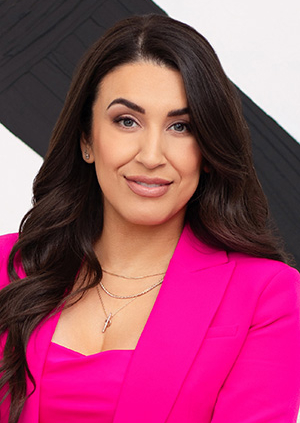 Advocate Spotlight: Rebecca Muñoz
Advocate Spotlight: Rebecca Muñoz
When Rebecca Muñoz felt an unexpected lump in her breast at just 29 years old, she never imagined how her life would transform. That moment, coupled with persistent fatigue that could no longer be ignored, led her to seek medical care. Despite assurances that the lump was likely “just a cyst” because she was “too young” for breast cancer, her family’s history with the disease prompted further testing. Soon she received a diagnosis: Stage II invasive ductal carcinoma. What followed was an experience that would not only change Rebecca’s life but also lead her to become a powerful advocate for others navigating similar paths.
Rebecca faced long delays before starting treatment, navigated multiple biopsies, and endured the grueling side effects of chemotherapy, which taught her the importance of advocating for her own care. When she expressed interest in scalp cooling to preserve her hair during treatment, her initial care team dismissed her concerns, telling her to focus on the disease rather than her hair. But for Rebecca, her hair represented more than aesthetics—it was a core part of her identity. Determined to take ownership of her treatment, she transferred to a facility nearly 100 miles away where her wishes were respected, and she successfully used scalp cooling during her six cycles of chemotherapy.
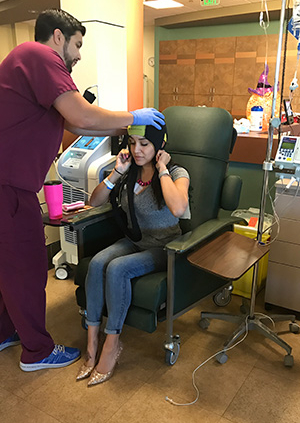
While Rebecca’s determination carried her through treatment, it was the support she received from other patients and survivors that became a lifeline. With her immediate family in El Paso, Texas, and far from her treatment location, online forums and peer connections provided the understanding and community she needed. “Knowing I wasn’t alone made a profound difference,” she recalls.
Rebecca’s experience navigating the complexities of care and advocating for her needs planted the seeds for her advocacy work. Inspired to ensure others wouldn’t face the same barriers, she founded Chemotherapy Cold Cappers, a global support network now connecting over 7,800 members in a private Facebook group. This community provides a vital space for patients to share experiences, exchange resources, and find encouragement during one of the most challenging periods of their lives.
Her passion for advocacy grew further when she joined the UT Health Austin Livestrong Cancer Institutes’ Young Adult Advisory Board and Patient and Family Advisory Council (PFAC). There, she collaborated with other patients and caregivers to design cancer care initiatives and ensure the voices of young adults with cancer were heard. “That experience ignited my passion for advocacy and showed me the power of collective effort,” Rebecca shares.
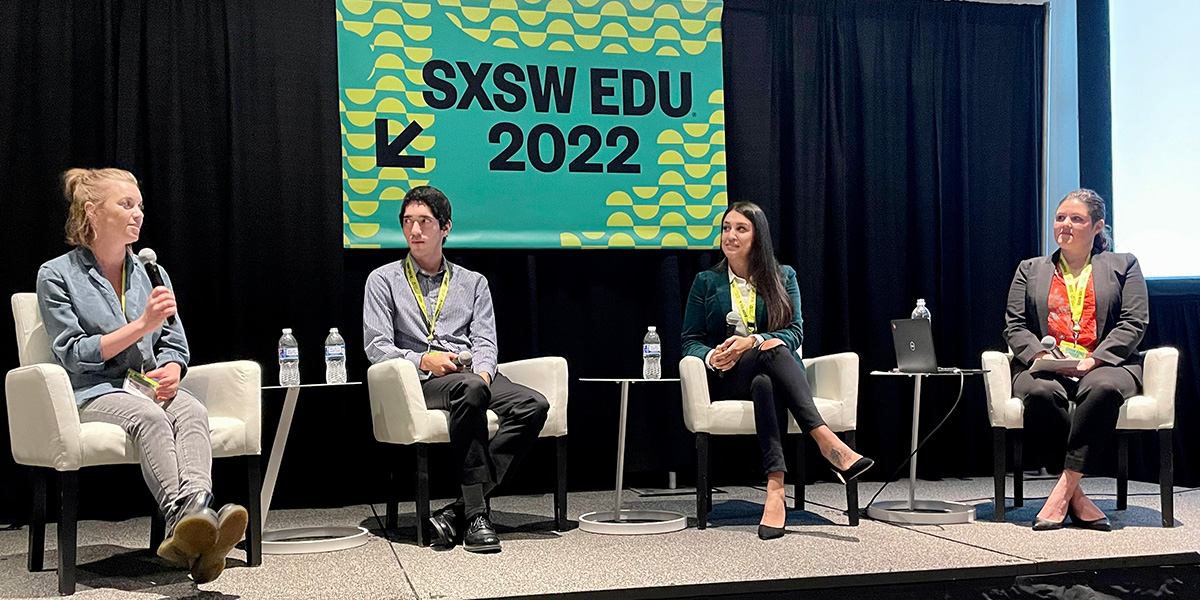
In 2022, Rebecca was honored as a South by Southwest (SXSW) Community Service Awards recipient for her work with Chemotherapy Cold Cappers. She later testified during the 2023 Texas legislative session to help pass SB 989, which improved access to biomarker testing.
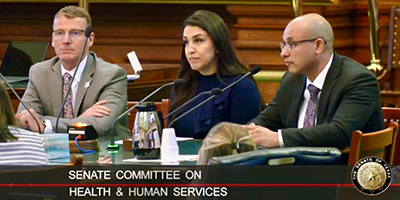
Her efforts extend beyond patient support to influencing future generations of researchers and clinicians. As a keynote speaker for the Livestrong at School program, she inspires young minds to pursue careers in cancer research and care. Rebecca also lends her expertise to programs like Cedars-Sinai’s U-GROW initiative, where she mentors undergraduates preparing for graduate studies in cancer research.
Rebecca’s academic achievements are equally impressive. She recently earned her doctorate in education, focusing her research on the quality of care for adolescent and young adult (AYA) cancer patients. “This degree brought my personal and professional advocacy efforts full circle,” Rebecca explains, highlighting how her work is helping to inform more equitable and patient-centered care practices.
Rebecca’s commitment to advocacy led her to NCCS, where she has participated in our Cancer Policy Advocacy Training (CPAT) Symposium. Reflecting on her first CPAT experience in 2024, she describes it as “one of the most impactful advocacy experiences I’ve ever encountered.” The training equipped her with tools to advocate for policy changes that improve the lives of cancer survivors, culminating in a memorable meeting with Congresswoman Veronica Escobar.
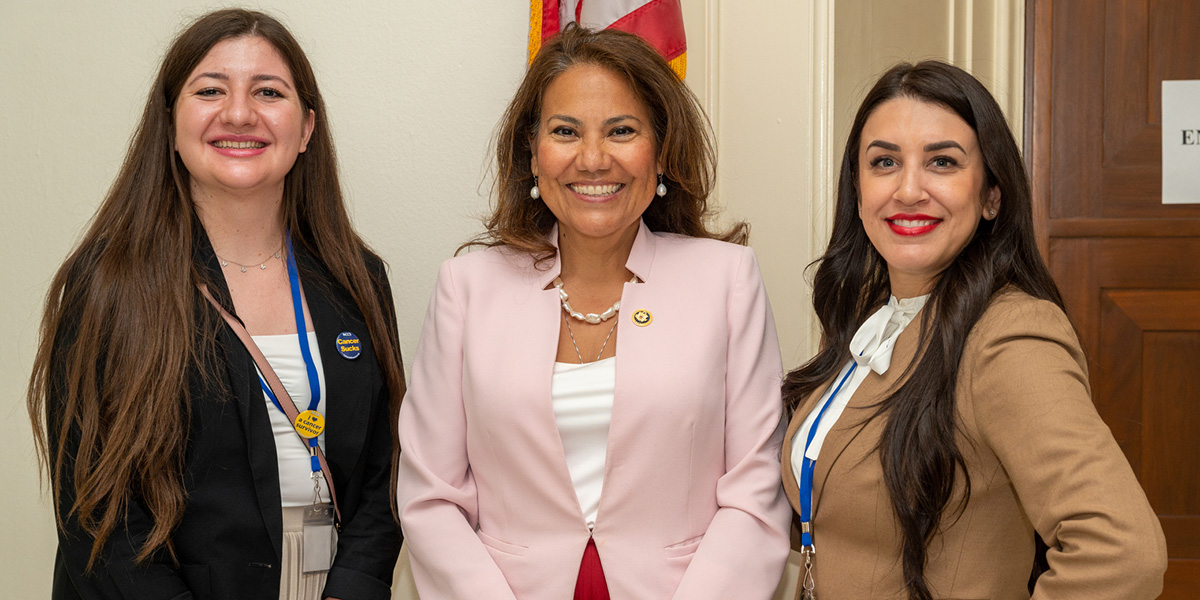
Rebecca (right) met with U.S. Rep. Veronica Escobar (TX-16, center) to advocate for survivorship legislation during NCCS Hill Day 2024.
“The opportunity to connect with a representative who not only shares a personal connection to cancer but also represents my hometown of El Paso was incredibly meaningful,” Rebecca shares. For her, NCCS’s work is invaluable because of its data-driven approach to supporting survivors and advocating for systemic change.
Rebecca believes advocacy is vital because it amplifies the voices of those who can no longer speak for themselves and pushes for change that benefits future generations. “Every action, no matter how small, contributes to a larger movement,” she explains.  Her advice to others considering advocacy is to get involved in any capacity—whether by sharing their story, volunteering with organizations like NCCS, or engaging with policymakers. “You’re part of a collective effort to create a more just and equitable health care system,” she emphasizes.
Her advice to others considering advocacy is to get involved in any capacity—whether by sharing their story, volunteering with organizations like NCCS, or engaging with policymakers. “You’re part of a collective effort to create a more just and equitable health care system,” she emphasizes.
As Rebecca continues her work as a health care consultant, researcher, and advocate, her vision is clear: to ensure that every cancer patient has access to quality, patient-centered care that respects their individual needs and preferences. Her journey is a testament to the power of resilience and the impact of advocacy. As she puts it, “Advocacy isn’t just about immediate results—it’s about the ripple effect. Every effort moves us closer to a world where survivors thrive.”
Learn more about NCCS’s CPAT program for advocates and join for free.
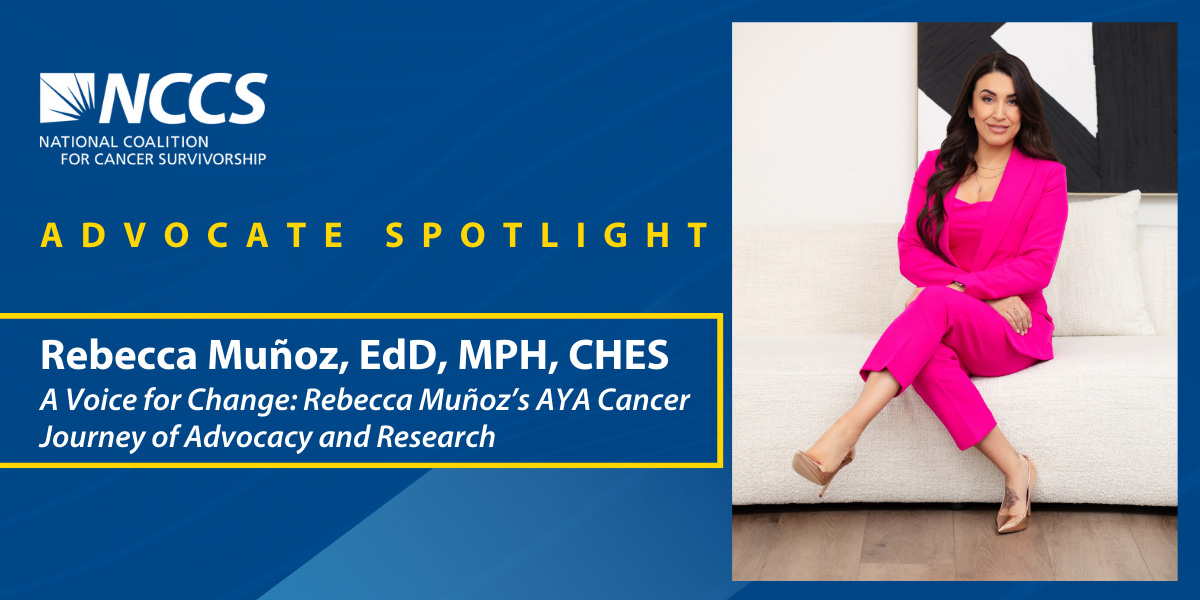

 Adobe Stock
Adobe Stock
